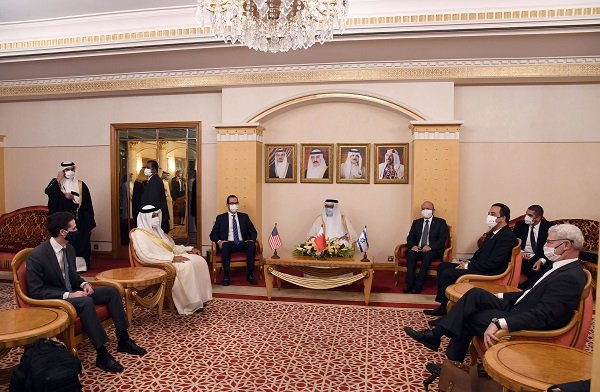
In the aftermath of the chaotic US presidential election, it is easy to forget that just weeks ago Sudan announced its intent to normalize relations with Israel. This latest declaration, following the historic Abraham Accords, made Sudan the third Arab country to establish diplomatic ties with Israel in less than three months. President Donald Trump commented that “at least five more” Arab states also want peace deals with Israel. However, if more deals are to materialize under the incoming Biden administration, they will be based on precedent and necessity, rather than personal diplomacy, as was the case for team Trump.
The Trump administration’s example laid enough of a
groundwork to prompt additional agreements, even without Jared Kushner’s
facilitation. The hardest part of the deal-making process, negotiating the
initial agreement, is over and the consequences measured. Iranian retaliation
has been minimal, and both Israeli and Emirati, Bahraini, and Sudanese
populations have largely accepted normalization without much public opposition.
Even without US assistance, that three diverse Arab countries have successfully
established relations with Israel provides prospective countries with a range
of brokers and a framework for future deals.

The incoming Biden administration’s statements about re-entering the Iran nuclear deal are also likely to push certain Arab countries toward normalization. In a September op-ed, Biden noted that if Iran returned to compliance with the JCPOA, the US would rejoin the agreement as a “starting point for follow-on negotiations.” Should the Biden administration ease sanctions on Iran, regional adversaries will need to prepare for an economically stronger Iran with a louder voice on the international stage. Biden’s approach toward Iran may push America’s traditional Middle Eastern allies to build a united front against Tehran by partnering with Israel.
Lastly, many Middle Eastern countries have realized that as
US enthusiasm for regional engagement wanes, they need Israel for national
security support. While the Biden administration’s affable approach toward Iran
differs from that of the Trump administration, America has been shying away
from the region for years. Both political parties campaigned on ending “endless
wars” and solving America’s problems at home. In the midst of a once in a
lifetime pandemic, widespread racial unrest, and a plunging economy, domestic
issues will be the priority for the incoming Biden administration. While there
are significant economic reasons to normalize relations with Israel as well,
the security gains at a time of US bipartisan retreat are undeniable.
Trump advanced Middle East peace through personal relationships. While the Biden administration may share that same end goal, any future progress will rely on Trump’s precedent or necessity. Ironically, Biden’s actions may succeed in a task that has thus far bemused even the savvy Jared Kushner. In promising to “reassess” America’s relationship with Saudi Arabia, the next administration could inadvertently push the Kingdom into Israel’s camp.
Alexa Santry is a research associate in AEI’s Foreign and Defense Policy department.
The post What a Biden presidency will mean for Middle East peace appeared first on American Enterprise Institute – AEI.
